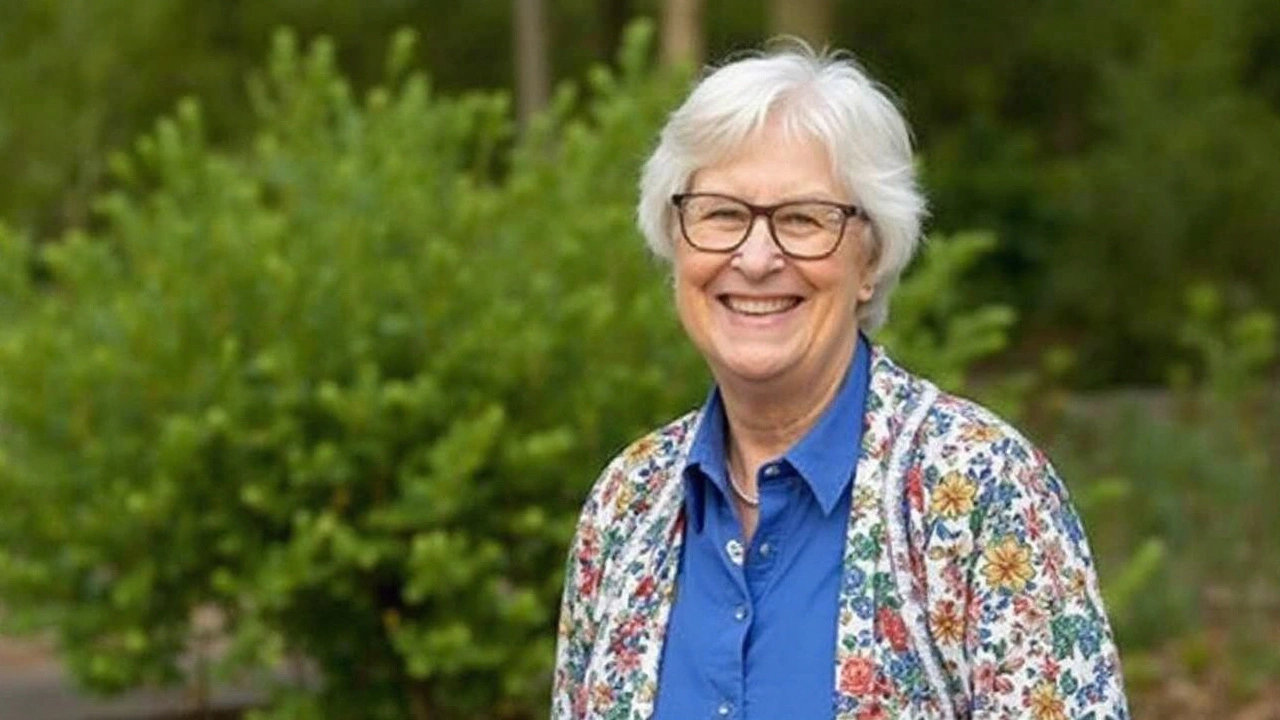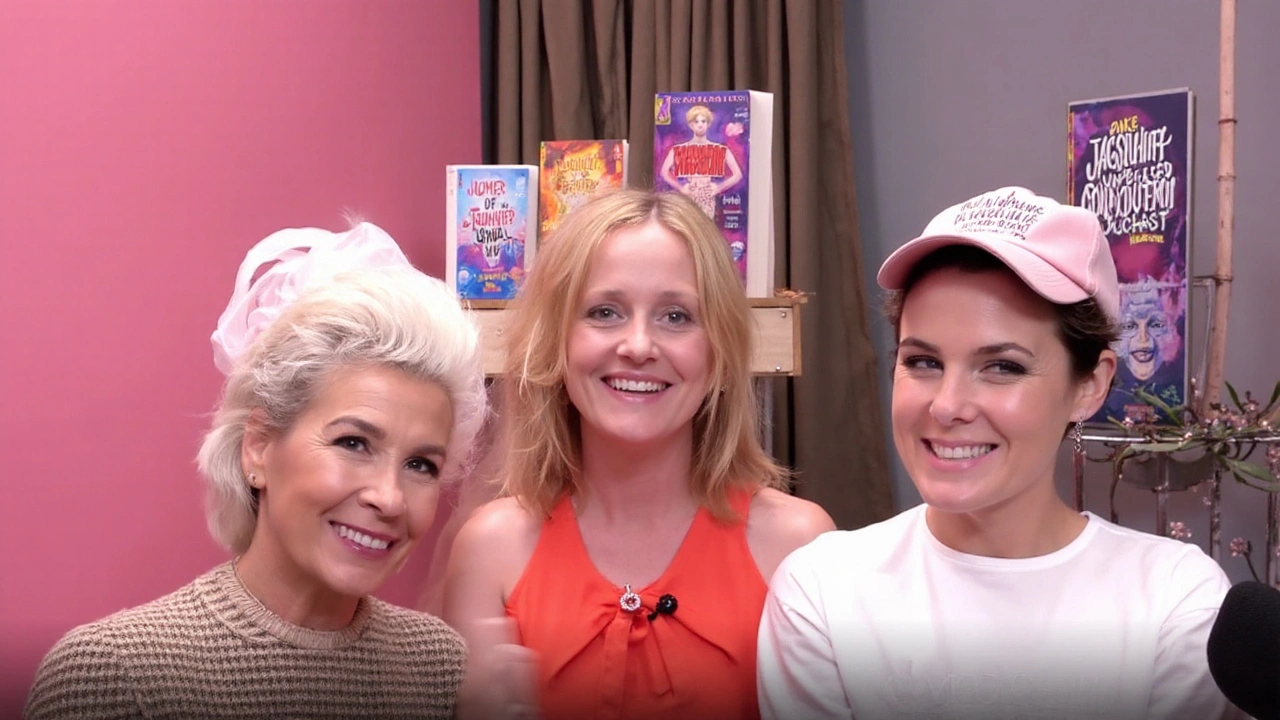A children’s author who shaped a generation is now on the mic
A generation that grew up with Tracy Beaker can now hear directly from the woman who created her. Dame Jacqueline Wilson has launched a four-part series, Jacqueline Wilson Raised Us, produced with Cosmopolitan UK and Transworld, a division of Penguin UK Books. Available from August 2025 on Spotify and other major platforms, the show turns Wilson’s long-running mission—honest conversations about childhood—into an intimate audio format.
The title makes its pitch clear: this is for the now-adults who found their first lessons on friendship, chaos at home, and resilience in Wilson’s novels. It’s also for the parents and teachers guiding new readers through those same themes. The partnership blends editorial muscle and audience reach. Cosmopolitan UK brings a large millennial and Gen Z community; Transworld adds publishing craft and access to Wilson’s deep backlist. The result is a neat bridge between the bookshelves of the 1990s and 2000s and today’s podcast queues.
One episode pairs Wilson with author and creator Louise Pentland for a frank conversation about childhood memories, parenting, and grief. Wilson outlines a principle that anchors the series: she writes for children who have it tough and for those who don’t, because both need help making sense of complicated behavior. The same lens applies to adults listening now—especially the ones trying to decode a stubborn, quiet, or explosive child at home or in class.
The show arrives at a moment when podcasts are a favored way for writers to expand their worlds without losing what makes their work feel personal. Audio suits Wilson’s style: plain, empathetic, and never patronizing. For long-time readers, hearing her talk through the emotional engines behind characters like Tracy Beaker and Hetty Feather is a way to revisit the stories with grown-up eyes—and, for many, with kids of their own.

What the four-part series covers—and why it matters now
The scope tracks closely with the threads that run through Wilson’s fiction: families that look different from the textbook picture, the messiness of care systems, complicated friendships, money worries, and the everyday bravery of children who keep going. The aim isn’t to rehash plotlines; it’s to pull out the human behavior underneath them and make it useful in real life.
- Childhood emotions in plain language: why some kids withdraw, why others lash out, and how adults can respond without escalating the moment.
- Parenting without the gloss: practical ways to talk to children about loss, separation, or change—including what to say when you don’t have tidy answers.
- School and the classroom: how teachers can use fiction to open safer conversations about bullying, anger, and identity.
- Growing up with Wilson’s books: what fans learned then, and what they hear differently now as adults.
That middle ground—between literature and daily life—is where Wilson has always worked best. Her novels never try to fix everything for the characters. They give tools: recognition, words for big feelings, and the sense that imperfect families are still families. The podcast follows the same path, only this time the guidance is spoken, and the audience is just as much the adults as the children.
The collaboration also fits how media is shifting. A four-part run gives enough time to go deep without demanding a full new season of storytelling. It lets Cosmopolitan UK program around episodes with editorial features and social video, and it allows Transworld to surface relevant titles—old and new—without turning the show into an advert. For Wilson, it’s a way to meet listeners where they already are and to speak directly, in her own voice, about the questions her books have raised for decades.
Distribution is straightforward: the series is on Spotify and other major platforms, with social rollout flagged on Instagram in mid-August. The format feels designed for sharing—short, quotable insights about parenting and childhood that travel well across feeds, backed by longer conversations for those who want more depth. If you’re a parent of a child who goes quiet when upset, or a teacher sensing there’s more beneath an outburst, this is material you can use the same day you listen.
Wilson’s track record makes that promise credible. As a former UK Children’s Laureate, she has long pushed for frank portrayals of children’s real lives—foster care, financial stress, absent or struggling parents—without losing humor or hope. That balance is hard to find in parenting advice and children’s media alike. In audio, she can slow down, tell the story behind the story, and explain her choices in plain English.
The Louise Pentland episode underscores that approach. Grief isn’t presented as a single event but as something that shows up in everyday behavior—sleep patterns, school avoidance, prickly friendships. Rather than prescribing a script, the conversation sits with the discomfort and shows how patience and curiosity often do more than strict rules. It’s a style that mirrors how Wilson writes: less lecture, more honest company.
For educators, the podcast offers practical entry points. A passage about a character who won’t speak can open a discussion about how silence can be a coping tool, not just defiance. A scene about a foster placement can lead to a classroom conversation about belonging and change. When Wilson says her stories help adults see why a child might seem angry or withdrawn, she’s mapping out how to read behavior as communication.
The audience sweet spot is wide: adults who grew up with the books; new parents looking for grounded advice; teachers seeking language that children actually understand; and older kids ready for deeper explanations. That’s the advantage of a four-part arc—each episode can stand alone while adding another layer to the bigger picture of how children process their worlds.
It helps that the show has a clear identity from the title down. Jacqueline Wilson Raised Us is both a nod to the readers who found their footing in her pages and a signal that the work is still ongoing, now in audio. If the books got you through the tough bits, the Jacqueline Wilson podcast is built to meet you where you are now—on the school run, in the staff room, or walking home after a hard day—ready to talk about the things families usually tiptoe around.
